'Melting Points 1 and 2 - Gynaecology' at the European Congress of Cytology (ECC) in Budapest
Mrs Alison Cropper, BAC President and Consultant Biomedical Scientist in Cervical Screening, University Hospitals of Derby and Burton
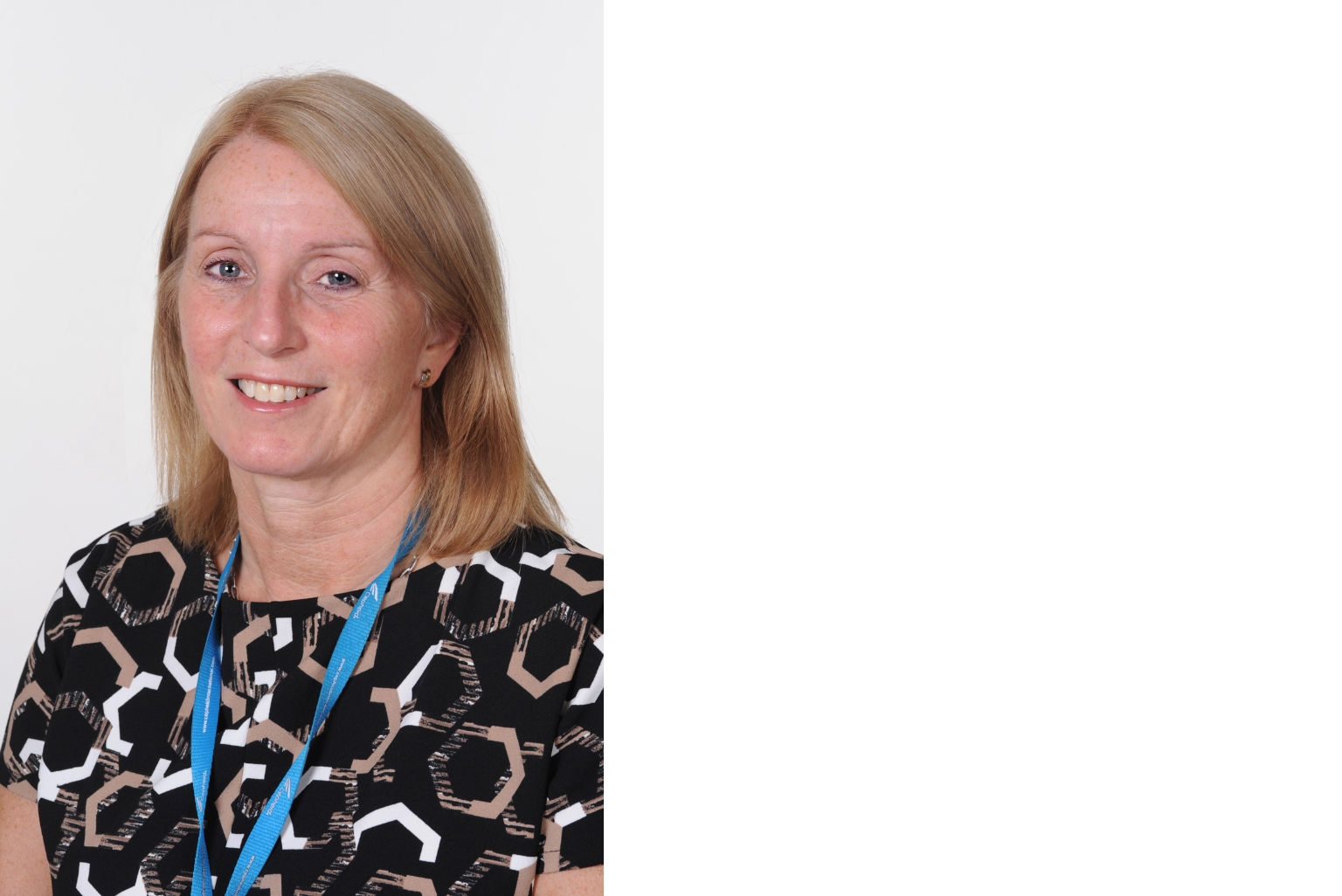
Mrs Alison Cropper, BAC President and Consultant
Biomedical Scientist in Cervical Screening,
University Hospitals of Derby and Burton
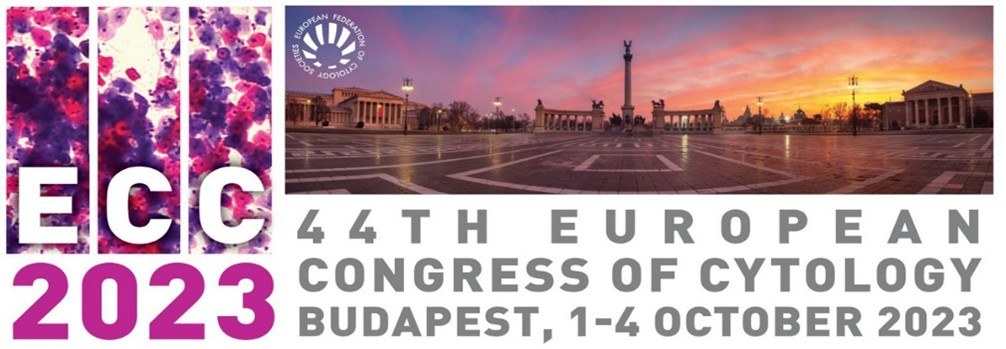
The conference venue had stunning views of the Danube River below which stretched across to the Buda Castle on the opposite bank. The mottos of the 44th ECC in Budapest were 'combined intelligence' and 'melting point', and the invitation was for cytologists across Europe and further to gather for 3 days of learning from each other's knowledge and diverse ways of thinking to help us find and fight diseases for a better future - 'the diagnosis by aspiration is as reliable as the combined intelligence of the clinician and pathologist makes it (Stewart, 1933)'.

My colleague Dr Louise Smart has already blogged about the BAC companion meeting held on Monday 2nd October so in this blog I am going to focus on two sessions held on Sunday the 1st, the first two 'melting point' plenary sessions of the conference, which I attended as cervical cytology and screening is my area of special interest and expertise. The Grand Budapest Ballroom in the Marriott hotel was used as the main auditorium for the conference; both sessions were held in here and were full - it was great to see that cervical cytology hasn’t completely gone off everyone's radar!
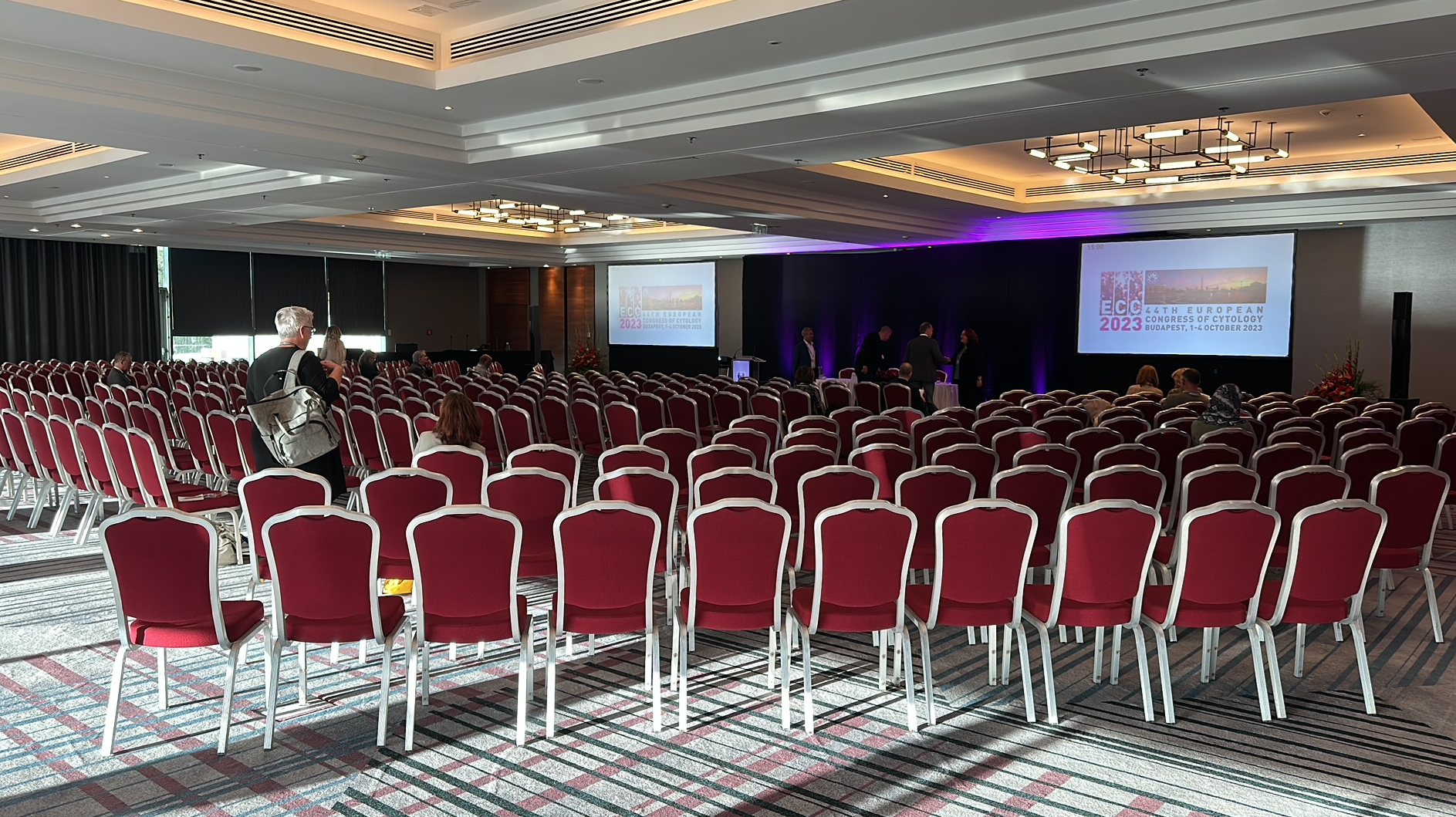
Melting Point 1 - cervical screening - present and future work together opened with Claire Bourgain from France giving an overview of cervical screening across Europe and highlighting the differences in our screening programmes and schedules, especially with regards to implementation of HPV testing / screening. It is variable across Europe to say the least!
In Italy for example, people under 30 have cytology primary screening and HPV DNA triage testing for low grade samples. Then at 30 they get an mRNA HPV test and if this is negative, they have a 5-year recall and a cytology slide made for HPV positive samples. The rationale for no HPV screening under 30 is to allow for clearance of most clinically irrelevant and transient infections so they can have more precise screening and prevention strategies after the age of 30.
Whereas in Germany, where annual 'Pap' tests have been the norm for almost 50 years, they are now doing HPV co-testing on people over 35 years every 3 years with no upper age limit. Any HPV positive sample with low grade cytology abnormalities are given a 12-month repeat, and not referred to Colposcopy as they are in the UK. The German programme is really focussed on those at highest risk of CIN 3, so only high-grade abnormalities are referred. Interestingly the overall HPV positive rate for all ages is 6.4%.
Finland is transitioning to molecular testing and the challenges and issues being faced were shared with the audience. As you wil know, Finland, like most Scandinavian countries, has had an organised screening programme since the 1960's and they have seen a dramatic fall in the incidence of cervical cancer, but this century has shown the incidence rate starting to climb and this has been attributed to an increase in non-attendance for screening, which is offered every 5 years between ages 30 and 65. Interval cancers are (not unsurprisingly) not uncommon.
Moving to 5 yearly HPV primary screening where all HPV positive tests (~10%) are referred to Colposcopy has (not unsurprisingly) seen a massive rise in the number of Colposcopy referrals! All HPV negative tests are given a 5-year recall. An audit undertaken in one centre checked the cytology of 10% of the HPV negative tests and found some abnormal cases, 2 of which were high grade; they typed these samples and found HPV types 69 and 11 which are not screened for.
We know this also happens in the UK and pockets of unscreened for types of HPV are starting to appear in some areas where cancer cases have been typed and HPV 75 has been found.
After a short refreshment break in the adjoining foyer, delegates moved back into the ballroom for the second session - Melting Point 2: Gynaecological Cytology - challenges and new technology.
Donna Russel, a leading Cytotechnologist from the USA who I have heard speak on a variety of topics over the years, was the first speaker, and described what she called the' paradigm shift' needed in the field of cervical cytopathology in order to embrace the future.
Most US labs are now HPV co-testing and just a few have introduced HPV primary screening, but there are many disparities in the standard of care across the US where the numbers of cervical cancers and deaths is high because women at highest risk are not being screened. A national screening programme is desperately needed.
In terms of HPV primary screening there is concern about how Cytotechnologists will be employed when the need for screening slides reduces, and especially if digital cytology such as the Hologic Genius AI system then follows and the requirement reduces even further. In anticipation of this impending molecular / digital age, the US has now elevated the Cytotechnology qualification to Masters level, in order to attract younger scientists to the profession, where the use of molecular testing and AI will be more attractive than conventional slide screening. What the profession needs is engaged, passionate Cytotechnologists and Pathologists to drive the future and embrace not fear the new technology and the changes it will bring.
The next speaker from Italy described the challenges being faced in Italy where HPV primary screening was implemented in 2013 and the Government at the time closed most of the cervical cytology labs and training schools believing that the role of the cytotechnologist would disappear, but what has actually happened is that the number of samples has dramatically increased as a significant proportion of people with HPV negative results are requesting private samples after 12 months as they do not want to wait 5 years for a screening test, and screeners are needed more than ever! AI could be the way forward.
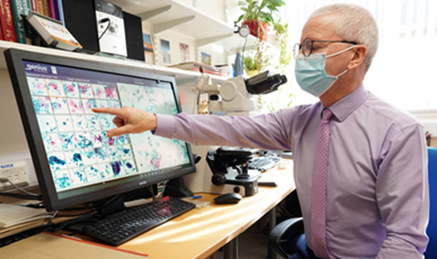
Following on from this was a talk from Norway about implementing digital cytology into cervical cytology - the Hologic Genius system - which had already been mentioned by some of the previous speakers and raised in subsequent discussions - it certainly seemed that the majority of delegates and speakers think this is the way forward for the cervical cytology profession.
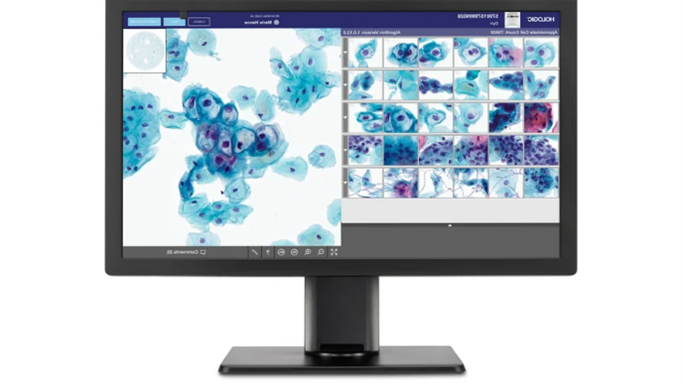
Norway certainly thinks so and having fully implemented HPV primary screening earlier this year have already moved on to implementation of AI in one large centre. It is early days but initial results are extremely encouraging and staff have taken to the new technology well as their locator skills transfer to interpreter skills.
The final speaker of the session from the Netherlands explained how their centre uses the molecular markers P16 and MIB-1 as an aid to interpretation of difficult cytology slides, in order to improve the accuracy of their cervical cytology reports. Such instances would be when cytotechnologists cannot decide between repair vs. dyskaryosis, atrophy vs. high grade or squamous vs. glandular - all the usual difficulties and pitfalls of cervical cytology we know so well! They also try to avoid using the Bethesda reporting category of ASC-H (atypical squamous cells where high grade cannot be excluded, not used in the UK) and so make a cell block from the primary vial and do P16 and MIB-1 tests to help decide.
All in all it was a really informative afternoon, and interesting to hear about the differences between screening programmes across Europe and how different strategies are being used in various countries. The take home message was definitely that cervical cytology is still here and will be for some time to come, we just need to embrace the new molecular and digital technologies and attract/educate/motivate a younger workforce in order to sustain the profession, and this certainly applies in the UK in my opinion!
